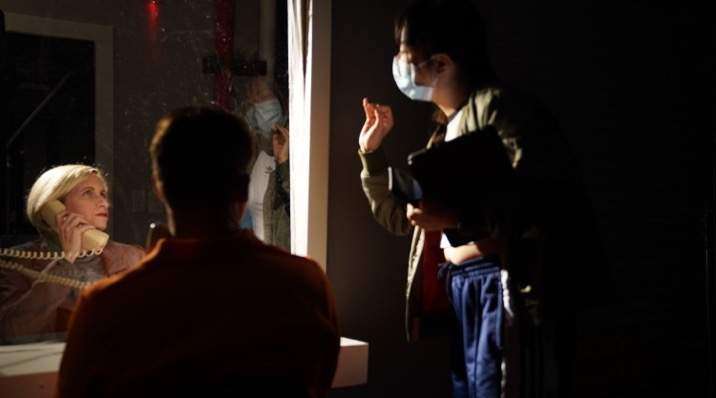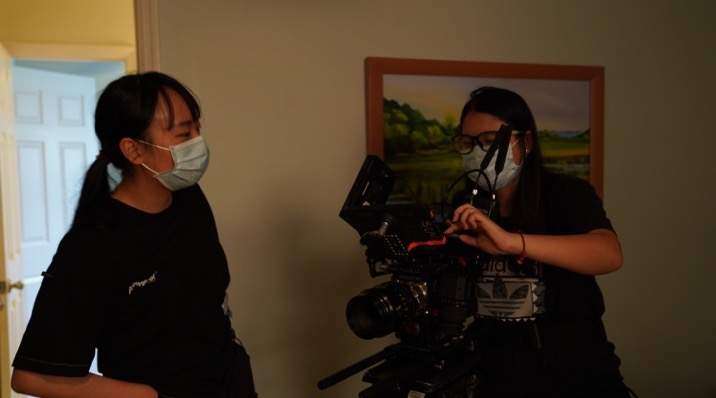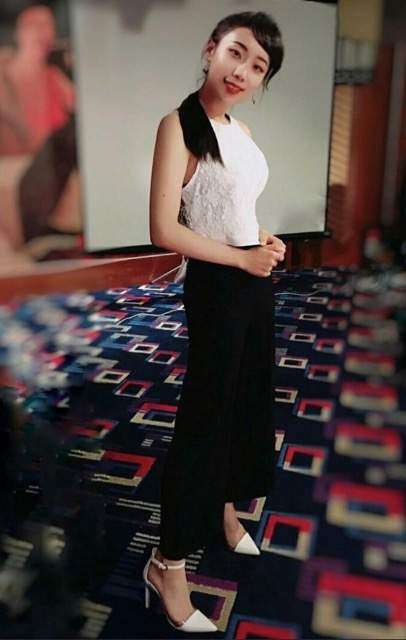
As a director, “Catherine” WenChun Cheng cares deeply about perspective. That’s as applicable for characters as it is for camera angles. Her careful consideration of how different characters perceive events is what shapes the productions she creates with such unique results. Catherine’s latest film Choice (on which she also served as the executive producer) displays domestic violence with a vantage far different than most, the abused male perspective. Along with her team of predominantly female collaborators, Catherine felt that presenting the story of an abused man would highlight the abuse itself and challenge gender based stereotypes. Choice has already been welcomed with enthusiasm, as indicated by its win at the IndieX Film Festival and numerous nominations at others (FILMHAUS: Berlin Film + New Media Competition, Chicago Indie Film Awards, etc.).

What Catherine and her fellow filmmakers have done with Choice is to disrupt the notion that domestic abuse is solely a female issue and thereby aid the cause for both women and men. A universal issue is harder to ignore for somewhat unsympathetic groups in society. While perhaps inspired by the current social climate and the #MeToo movement, deeper investigation informed the artists behind this film, leading to its creation. Catherine informs, “In making this film, we hoped to contribute to the ongoing dialogue on gender equality and domestic violence. We aimed to challenge stereotypes and encourage viewers to think critically about the issue, rather than simply accepting the dominant narrative. Ultimately, our goal was to create a more inclusive and equitable society where all individuals are treated with respect and dignity, regardless of their gender or other characteristics. We felt that there was a need to broaden the conversation to include all forms of abuse and to promote true gender equality. We believed that true equality means treating all individuals, regardless of gender, as individuals based on their actions and not as stereotypes or preconceptions.” Regardless of the medium or genre, the most talented storytellers have been able to use their skill to plant the seeds of lasting societal change.

The first scenes of Choice introduce Vincent (Bradley Shane Harrelson of Primetime Emmy Nominated Series The Underground Railroad), a man with blood stained clothes who has been arrested for the suspected murder of his own wife. His appointed public defender [Angela] interviews him to unravel the truth of what has happened. Told in numerous flashbacks, the reality that he was abused by his wife Lavinia over years is revealed. In experiences from Vincent’s childhood (young Vincent is portrayed by Thomas Parobek of Netflix’s Primetime Emmy nominated series Cobra Kai), we see that he unconsciously repeats a cycle he has known most of his life. As the truth about Vincent’s abuse and his wife’s role in the tragedy comes to light, the story ends on an open note. Angela is determined to fight for Vincent’s freedom and clear his name, but the audience is left to decide whether they believe Vincent acted in self-defense or not. The story’s open ending leaves the audience to consider the complexities of domestic abuse and the difficult decisions that victims may face. It invites viewers to question their assumptions about relationships and the lengths that someone may go to protect themselves or their loved ones. Ultimately, the audience is left to make their own judgment about Vincent’s actions and the tragic circumstances which led to his wife’s death. The story serves as a thought-provoking exploration of the grey areas of the law, morality, and justice.
There are numerous shocking scenes in Choice; impressively, Catherine has rebuked a sensationalist approach in favor of the gravitas this topic deserves. Even the selection of camera angles subtly communicates the relationship of power between this ill-paired married couple. Choice is one of those rare films which inspires discussion rather than offering clear answers. This approach is by design and is no doubt what has led to Choice being so popular on the film festival circuit. If Catherine Cheng wanted to spark discussion, Choice has proven itself to be incendiary.
Writer: Basil Thomson